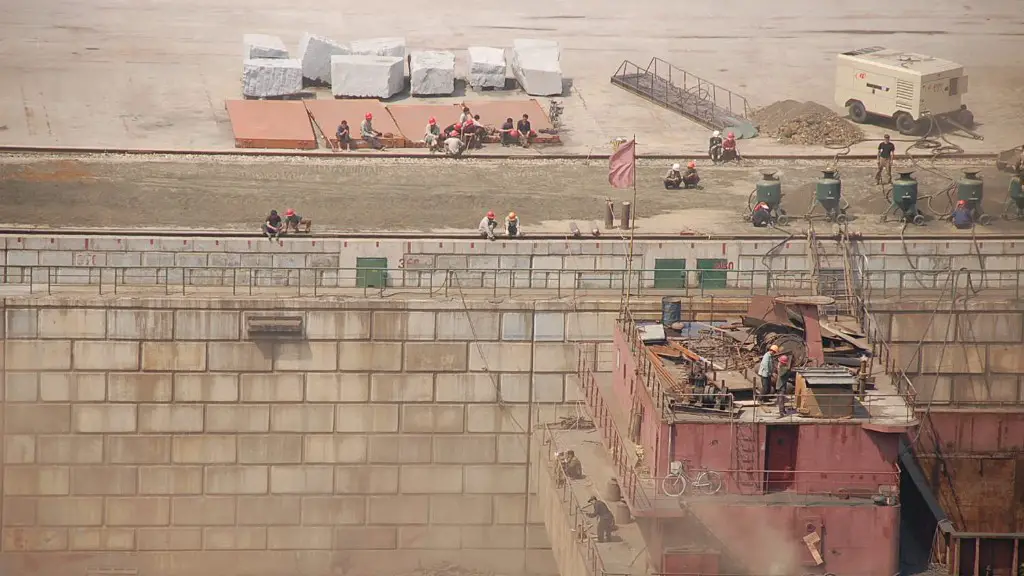Explosion Effects of a Nuke
The bombing of Hiroshima and Nagasaki by the United States during World War II resulted in immense destruction and devastation. scientists estimate that North Korea’s nuclear weapons may cause a similar scale of destruction if launched against South Korea. Nuclear bombs contain both fission and fusion materials that create an immense power of destruction. The powerful heat releases from a nuclear detonation can vaporize nearly everything it comes in contact with. The area impacted by the blast would be huge and the destruction extends beyond just the city hit.
The direct destruction effects of a nuclear weapon are shock waves, thermal radiation, electromagnetic pulse, and radiation fallout. Shock waves create massive destruction to the area within the defined range of the weapon. They can rupture and flatten buildings, set fire to vegetation, and cause immediate death or severe burns to humans and other living organisms. Thermal radiation is a deadly form of energy. It causes extreme heat and fire over a wide area. The EMP or electromagnetic pulse, on the other hand, is an electrical shock wave that has the potential to disable computers, power grids, and communication lines. Radiation fallout is the most dangerous consequence of nuclear detonation. This is because the particles released by the fission process can cause skin cancer and internal damage to organs if inhaled or ingested.
Consequences of Nuking Korea
The horrific consequences of a nuclear weapon detonation in the Korean Peninsula are almost unmeasurable. It is likely to increase the number of casualties, displacements, radiation sickness, and psychological trauma in the affected area. Experts have advised that a nuclear strike to the Seoul metropolitan area would result in a large-scale humanitarian catastrophe. South Korea is today one of the most densely populated countries in the world, home to over 25 million people. Even if a nuclear attack happens outside this densely populated region, the destructive effects of shock waves, thermal radiation, and radiation fallout would still be highly devastating.
The actual extent of destruction of the aftermath of a nuclear attack depends on the size and the yield of the nuclear weapon. Civilians could suffer from radiation poisoning due to the consumption of contaminated food and water, and radiation damages to humans, animals, and environment can last for years. The health, social, and economic implications of an attack could be catastrophic and long-lasting. Aside from the possible loss of human life and destruction of property, the crisis can set off a total collapse in the economy, disrupt critical infrastructure, and cause an increase in nuclear proliferation in the region. A nuclear detonation could also lead to a possible global economic recession due to supply chain disruption.
Massive Leading to War Escalation
The risk of a nuclear attack in the Korean Peninsula could spark a military conflict between South Korea, the United States, China, and North Korea. Any kind of nuclear attack between the two countries would likely to cause a regional military conflict that could last for decades. This would have serious regional security implications as the regional players like China, Japan, and the US would have to intervene. It could lead to a disruption of international trade, as well as global financial markets, putting the world at the risk of a major economic and financial crisis. Moreover, North Korea’s nuclear weapons could be used as a means of coercion for the entire region. The scenario would also be compounded by the flow of refugees who would flee from the affected countries.
Global Repercussion -Drawing Down of Rhetoric
The effects of a nuclear attack, particularly on the Korean Peninsula, would greatly affect global geopolitics. It is possibly the only event that would capture the world’s attention and mobilise world leaders to prevent it from happening. Aside from the direct short-term impacts, the long-term implications of a nuclear attack can have significant global repercussions. The tension between the North and the South could draw in the great powers and could easily lead to an all-out war. It could disrupt global peace and security as well as trade and finance, affecting the entire world.
Despite several reports of North Korea testing nuclear weapons, world leaders from the US, China and South Korea have constantly called for diplomacy and the drawing down of rhetoric. Resolving the tension between the North and the South peacefully is the only way to avoid conflict and preserve the global peace.
Effects on the US
US military presence in the Korean Peninsula is a central element in the effort to deter a war between the two countries and maintain peace in the region. The US has 28,500 troops stationed in South Korea. If a nuclear strike were to happen in the Peninsula, US military personnel are among the first to be in danger.
The US has a long-standing security commitment to South Korea and its forces deployed there would most likely come under attack if North Korea launches a nuclear attack. This could lead to an all-out military conflict between the two countries, which would be devastating for the region and the entire world.
International Reactions and Sanctions
North Korea has been subject to numerous sanctions imposed by the United Nations for its nuclear activities. These measures were put in place with the goal of preventing the country from producing and testing nuclear weapons. Should North Korea launch a nuclear attack against South Korea, the global community’s reaction and the level of sanctions placed on the country would be significantly harsher.
The International Atomic Energy Agency (IAEA) could also come into play, as they have the mandate to investigate and monitor North Korea’s nuclear activities. The agency creates an early detection system to identify proliferation activities, and could also inspect North Korean nuclear facilities if requested by the United Nations.
Restrictions on Technology and Materials
The United States has imposed economic sanctions and travel restrictions on North Korea since the 1950s. These measures were targeted at the country’s government, its leaders, and its general economy. Recently, the US has imposed further sanctions, including restrictions on the import and export of certain technologies and materials that could be used for creating nuclear weapons. These measures are intended to prevent North Korea from developing its nuclear capabilities.
The international community has also stepped in to increase the pressure on North Korea. Countries like China, Japan, and South Korea have all imposed their own sanctions on North Korea. This includes restrictions on trade and asset freezes, among other measures. The goal of these sanctions is to ensure that North Korea does not develop the capability to launch a nuclear attack against other countries.
Political Tensions
The often hostile relationship between North and South Korea has had a profound impact on the region’s political landscape. Political tensions have increased in recent years, which has made the situation even more precarious. The international community has attempted to mediate the situation to reduce the risk of war and a possible nuclear disaster.
Recently, there have been some positive steps towards easing the political tensions in the Korean Peninsula. South Korean President Moon has sought talks with Kim Jong Un and has maintained an open dialogue with the North Korean officials. The US and China have also played a role in attempting to reduce the tensions. These diplomatic efforts have brought hope of de-escalation in the Korean Peninsula, but the situation remains tense and delicate.
The Role of the US
The United States has traditionally been the main mediator in the affair. The current US president has maintained open dialogue with North Korean officials and has emphasized diplomatic talks in order to reduce tensions and reach a common ground. The Trump administration’s sanctions have also played a role in regulating and restricting North Korea’s nuclear activities.
Additionally, the United States has maintained a military presence in the region and has conducted joint military exercises with South Korea and other countries in the region. These have been conducted to improve military coordination and strengthen the US-South Korea alliance. The US has also provided military assistance to South Korea, which has bolstered the country’s defense capabilities.
International Humanitarian Aid
The threat of a potential nuclear attack in the Korean Peninsula has been of great concern for the international community. Countries from all over the world have provided aid to help the North and South Korean people. In recent years, the amount of aid provided to North Korea has decreased significantly as international pressure has intensified.
However, humanitarian aid organizations are still providing help in the region. The United Nations World Food Program (WFP) is one of the most active organizations in the region, providing food and nutritional assistance to both North and South Koreans. The WFP and various other international aid organizations are doing their part to help the people of the Korean Peninsula.


